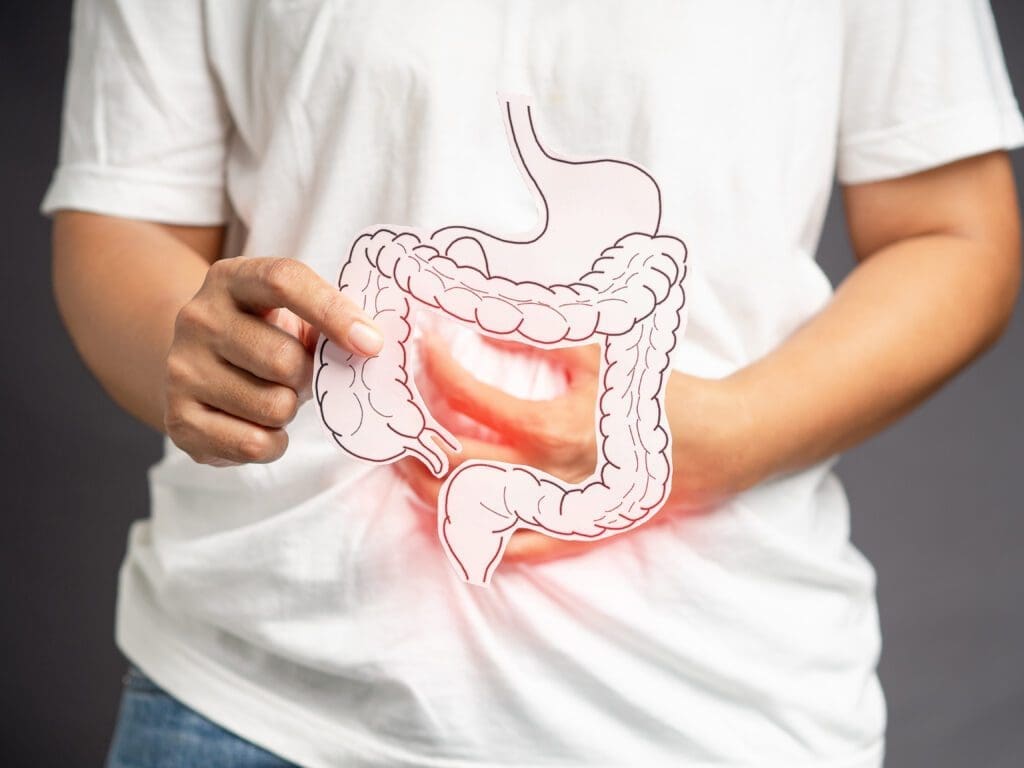Covid headaches are the major left behind after the ending of the coronavirus period and the most experienced. In this blog, you will learn how to understand and explore treatments, natural remedies, medications and non-medical approaches to get relief from head pain with ease. We will also shed light on the connection between covid vaccines and headaches and the long-term implications of suffering from pain.
Understanding COVID Headache Relief
Relief from this condition requires a comprehensive understanding of the symptoms and causes of this condition. Unlike regular headaches, COVID headache accompanies other symptoms such as fever, cough, loss of taste or smell, and fatigue. It is essential to differentiate between both types of head pain to ensure appropriate treatment.
When it comes to relieving the pain, there are several approaches you can consider. Natural remedies such as rest, hydration, applying hot or cold compresses, and practising relaxation techniques like deep breathing or meditation can provide temporary relief. Over-the-counter medications can also bring comfort to the pain associated with this pain.
However, it is essential to consult with a doctor or a healthcare professional before taking any medications, as they can provide guidance based on your specific condition and medical history. They can recommend the most suitable drug and dosage for you.
Pharmacological treatments can effectively manage this head pain condition in addition to natural remedies and over-the-counter medications. These may include physical therapy, chiropractic adjustments, acupuncture, or cognitive-behavioral therapy.
Symptoms
It can manifest as severe pain on both sides of the head and often worsen over time. Along with head pain, common symptoms include loss of taste and smell, a sore throat, and nasal congestion. It’s not unusual for muscle weakness and fatigue to accompany head pain. Pay attention to shortness of breath and other red flags, which may indicate a severe infection. Recognising these symptoms can lead to early diagnosis and appropriate treatment.

Why does COVID Headache Come?
One possible reason is that the virus can directly affect the central nervous system, leading to inflammation and irritation of the nerves in the brain. Additionally, it can trigger an immune response in the body, resulting in increased production of certain substances that can cause head pain. Furthermore, the general symptoms of COVID-19, such as fever, dehydration, and fatigue, can also contribute to headache development.
Self Management during Corona-related issues
COVID headache differences?
It is a pulsating sensation within the head and other symptoms like fever, cough, and loss of taste or smell. It can be more severe and persistent than a regular headache. If you experience these symptoms, it’s essential to get tested and seek medical advice.
Identifying a COVID 19 Headache
Distinguishing between a regular headache and a COVID headache is essential for appropriate medical attention. These head pains often exhibit distinct characteristics that distinguish them from everyday pain. Considering the presence of a headache along with other common symptoms of COVID headache can help in identifying the cause. Factors such as medical history, risk factors, and exposure can aid in diagnosing a COVID 19 headache. Always consult with primary care or medical professionals for proper evaluation.
Distinct Characteristics of a COVID Headache
It may resemble migraines with their throbbing pain. They can persist for days or even weeks, often not responding to over-the-counter pain relievers. These head pains can be severe and debilitating, impacting daily life. Interestingly, younger patients may experience COVID headache even without a history of migraines. It’s important to recognise these distinct characteristics when identifying a COVID headache and understanding the unique features which can help in appropriate medical evaluation and treatment.
Is it a Normal Headache or a COVID Headache?
Differentiating between a regular headache and a COVID 19 headache can be done by comparing symptoms. Look for common COVID-19 symptoms alongside the headache, consider migraine history and risk factors, and pay attention to persistent, severe pain that doesn’t respond to usual treatments. Seek medical help if accompanied by red flags or severe pain.
Comparing Symptoms
Head pains may manifest alongside symptoms of long-term COVID-19, such as brain fog, loss of taste, and loss of smell. It’s important to note that tension, stress, and clusters can occur in individuals without coronavirus disease. In contrast, COVID-19 headaches may have unique symptoms like a sore throat, runny nose, and shortness of breath. Symptoms of long-term COVID-19, including chronic headaches, lack of sleep, and muscle weakness, can persist even after the infection resolves. Differentiating symptoms of COVID-19 headaches from primary headaches aids in accurate diagnosis and treatment.
Read on for more symptoms testing.
Approaches to Alleviate a COVID-19 Headache
Natural remedies like relaxation techniques and stress reduction can help relieve symptoms. Additionally, staying hydrated, getting enough sleep, and maintaining a balanced diet can alleviate head pain. Over-the-counter pain relievers can provide temporary relief when used as directed. Physical therapy and exercises that target the head, neck, and shoulders may reduce tension associated with the infection.
Natural Remedies for Relief
Applying a cold or warm compress to the head and neck can temporarily relieve a COVID-19 headache. Practising deep breathing exercises, meditation, or yoga can help manage stress-related problems. Regular physical activity, like walking or gentle stretching, promotes blood flow and relieves tension. Herbal teas can have calming effects and ease head pain symptoms.
Medications to Consider
If you experience headaches due to COVID 19, different medications can help ease the pain. For mild to moderate headaches, you can try over-the-counter pain relievers like acetaminophen or ibuprofen. If you feel nauseous or vomit along with the headache, antiemetics like metoclopramide may help. For tension associated with the infection, muscle relaxants like cyclobenzaprine can be effective when prescribed. However, it is essential to consult with a medical professional before starting any medication.
Non-pharmacological Treatments for COVID-19 Headache
Adequate sleep and rest are crucial to reducing headache symptoms. Applying a cold or warm compress to the side of the head can provide temporary relief. Practising stress management techniques help manage headache symptoms. Regular physical activity like meditation and deep breathing can help decrease the intensity of headaches. Incorporating these non-pharmacological treatments into your routine can aid in pain relief.
Role of Hydration and Rest
Staying hydrated is essential in preventing dehydration. It is important to take short breaks throughout the day to rest and relax, as this can alleviate pain symptoms. Drinking water daily helps flush out toxins from the body, reducing the risk of head pains. Additionally, avoiding excessive caffeine consumption can also act as a prevention. By prioritising hydration and rest, you can reduce the frequency and intensity of headaches.
Importance of a Balanced Diet
Consuming foods rich in fruits, vegetables, and whole grains can reduce the risk; by avoiding trigger foods such as processed meats and aged cheeses, you can help prevent head pain. It’s essential to maintain stable blood sugar levels by eating regular, balanced meals, additionally including magnesium-rich foods like nuts, seeds, and leafy greens in your diet. Limiting the consumption of alcohol and artificial sweeteners can further contribute to prevention.
When Should You Seek Medical Help?
If you experience worsening or severe headache symptoms, it’s essential to seek medical attention. Consult a healthcare professional if neurological symptoms accompany you or persisting pain despite trying non-pharmacological treatments.
Recognising Serious Symptoms
It is essential to recognise the severe symptoms associated with COVID headaches. If it leads to severe muscle weakness or loss of consciousness, seeking medical attention is necessary. Persistent and severe pain also requires medical evaluation. Consulting a healthcare professional is recommended if headaches are associated with neurological symptoms such as vision changes or difficulty speaking. Recurring headaches that interfere with daily activities should also prompt medical attention.
Prevention Measures for COVID Headache
Properly wearing a mask is crucial to reducing the risk of contracting COVID, a potential trigger, following recommended hygiene practices, like avoiding touching the face. Additionally, maintaining physical distancing is essential to minimise exposure to the virus. Adequate ventilation in indoor spaces further decreases the risk of contracting the virus and developing head pain.
Appropriate Mask Usage
Opt for a mask that fits comfortably against the sides of the head, reducing the risk. However, suppose you already have tension in your head, a sore throat, or a severe headache. In that case, it’s best to avoid wearing masks as they may worsen the symptoms. Additionally, regular cleaning of reusable covers is essential to stop the spreading of the bacteria that can trigger pain. If you experience headaches, taking short breaks from wearing masks can help alleviate discomfort.
Importance of Regular Hand Washing
Regular hand washing is paramount in reducing the risk of infection. It is a must to wash hands thoroughly for at least 20 seconds. Additionally, avoiding touching the face, especially the eyes, nose, and mouth, can help prevent the transmission of the virus and subsequently reduce the risk of pain. Good hand hygiene is crucial in minimising the risk. Regular hand washing among family members and colleagues is also beneficial in preventing headaches.
Relation between COVID 19 Vaccines and Headaches
It is a common side effect of COVID 19 vaccination, usually resolving within a few days. It’s important to note that these vaccines do not cause severe headaches, blood clots, or long-term neurological symptoms. The risk of experiencing a headache after vaccination is higher in younger individuals. If headache symptoms persist or worsen after vaccination, it is advisable to seek medical attention. It’s worth mentioning that most common symptoms of long COVID, including headaches, can be relieved with appropriate medical care.
Possible Side Effects of Vaccination
These headaches usually resolve on their own without medical intervention. Along with a headache, individuals may experience soreness, redness, or swelling at the injection site. Fatigue, muscle pain, and fever are also possible side effects of the vaccine, in addition to headaches. Most side effects are manageable with over-the-counter pain relievers.
Long-term Implications of COVID 19 Headaches
Chronic headaches can persist as a long-term symptom even after the acute infection of COVID-19 has resolved. These prolonged COVID headaches can have a significant impact on the quality of life. It is crucial to understand the neurological symptoms associated with these headaches. Seeking medical attention is essential for effectively managing long-term problems. By understanding the implications and seeking appropriate medical care, individuals can find relief from these persistent headaches.
Understanding Long COVID Headache
Persistent headaches experienced after recovering from acute infection are referred to as long COVID headaches. These can manifest as tension, migraine, or cluster. Diagnosis and differentiation from other types of headaches require medical attention. Research indicates that systemic inflammation, neurological symptoms, and immune system dysregulation may influence prolonged head pain. Understanding the risk factors and treatment strategies for long COVID-19 headaches is crucial for effective management.
Can Lifestyle Modifications Aid in Managing COVID Headaches?
Stress reduction techniques, sufficient sleep, and regular physical activity can help alleviate symptoms. Maintain a consistent sleep schedule, manage stress levels, and engage in physical activity as tolerated. Seeking personalised treatment strategies from healthcare professionals is also recommended.
Find out more about the new COVID variant.
Conclusion
Identifying COVID headaches at the earliest from a normal one can help you take appropriate measures quickly. Natural remedies like keeping your body hydrated and getting adequate sleep can provide relief. Using medicines and other treatments can be considered, but depending on the severity of the condition, prevention measures like using masks and, keeping your hands clean and well sanitised, taking COVID jabs. Lifestyle changes can help manage any headache. If you have any suggestions or use tips, feel free to comment and let us know, please.



